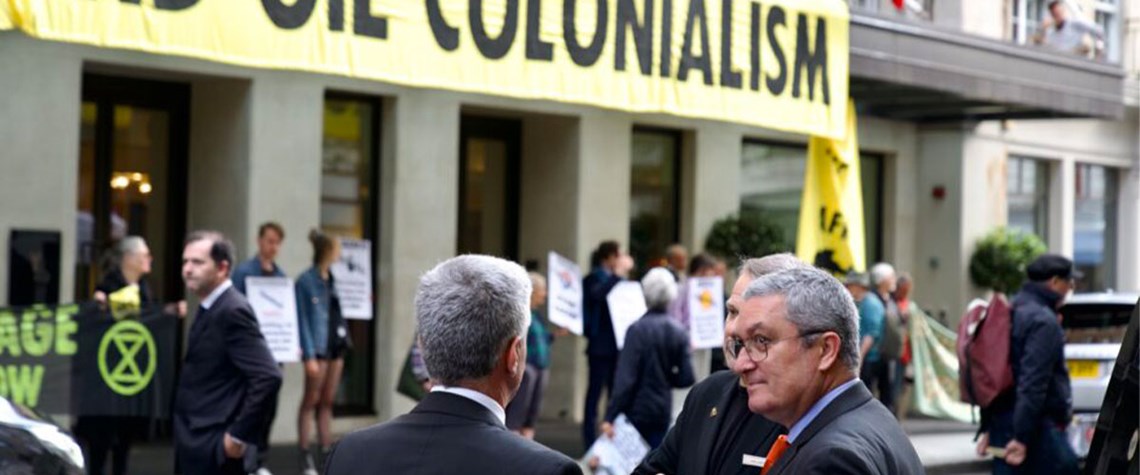Letter from London: A tale of two sectors
Africa’s upstream is heavily populated by companies headquartered in London, where an increasingly positive environment for independents contrasts with the public pressure on the majors
Climate change protesters recently targeted an African oil and gas conference in London, with one of the participating groups—Extinction Rebellion—specifically citing Shell and TotalEnergies in its complaints and issuing a press release condemning the East African Crude Oil Pipeline, which the French major is developing alongside China’s Cnooc as part of the Lake Albert project. Shell and BP have long been bogeymen for British environmental groups, perhaps partially out of name recognition value, if nothing else. And now the UK popular press—itself often at odds with environmental protesters—is also keen to blame the current inflationary crisis and high petrol-pump prices on the oil majors.

Also in this section
18 February 2026
With Texas LNG approaching financial close, Alaska LNG advancing towards a phased buildout and Magnolia LNG positioned for future optionality, Glenfarne CEO Brendan Duval says the coming year will demonstrate how the company’s more focused, owner-operator approach is reshaping LNG infrastructure development in the North America
18 February 2026
The global gas industry is no longer on the backfoot, hesitantly justifying the value of its product, but has greater confidence in gas remaining a core part of the global energy mix for decades
18 February 2026
With marketable supply unlikely to grow significantly and limited scope for pipeline imports, Brazil is expected to continue relying on LNG to cover supply shortfalls, Ieda Gomes, senior adviser of Brazilian thinktank FGV Energia,
tells Petroleum Economist
17 February 2026
The 25th WPC Energy Congress, taking place in Riyadh, Saudi Arabia from 26–30 April 2026, will bring together leaders from the political, industrial, financial and technology sectors under the unifying theme “Pathways to an Energy Future for All”







